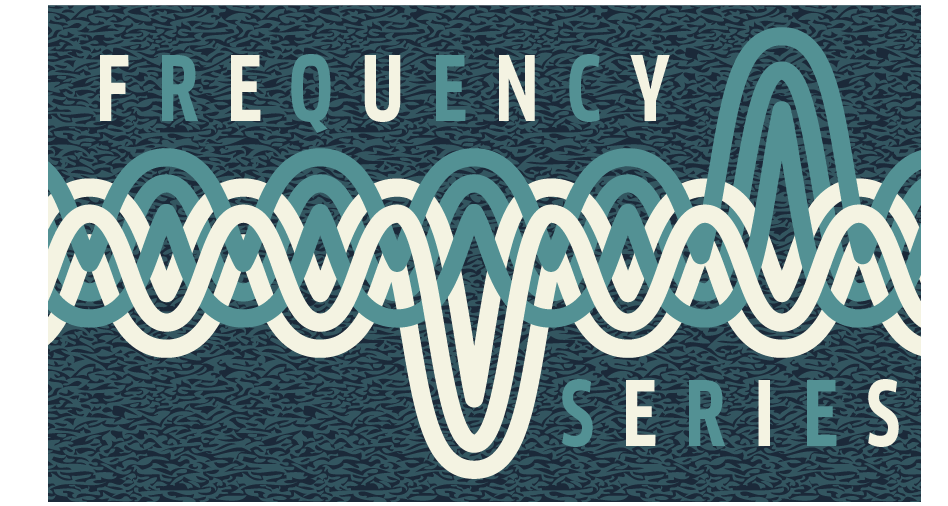Eli Keszler finds a powerful complement to his kinetic percussion in tweaked field recordings
Eli Keszler (photo: Brendan Burdzinski)
Eli Keszler's 2016 album Last Signs of Speed (Empty Editions) delivered a big shift for the New York percussionist, who previously seemed fully devoted to mixing installation pieces with herky-jerk performance. Four years earlier his album Catching Net (PAN) he recorded piano strings suspended and hung in a large room that were activated by motorized beaters and captured with contact mikes, while most of his other recordings presented a deeply frenetic yet meticulously controlled clatter somewhere between the spasmodic machinations of John Stevens or Michael Zerang and the endlessly morphing, multi-pulse drumming of Milford Graves (although lacking his commanding low-end presence). But Last Signs signaled a shift that had been hinted at in some of Keszler's collaborative work with folks like David Grubbs, Keith Fullerton Whitman, and Rashad Becker. His percussion work seemed intent on finding a sonic grounding, and with that record his kick drum became its own peculiar world of sound unto itself, rippling with bass and triggered aqueous electronic tones that gave everything he did a kind of ambient foundation.
That process has gone into overdrive with the impressive new Stadium (Shelter Press), where his percussion twitches, throbs, and sizzles amid serene electronic scapes. At times it seems as though Keszler has cracked the code that made the insanely complex programmed rhythm of Autechre impossible for any human to play. During travels leading up the record's creation he made field recordings around the globe, whether the pinging of a Tokyo pachinko parlor or a boiler room in Boston's city hall. As he said in a recent interview published by Self-Titled:
I laid out these beds of sounds and freely wrote music around it. I started to take these recordings that were quite long and squashing them, speeding them up to incredible speeds so they could be mapped to instruments. Then it became recordings of buildings layered and collaged over each other, so you have this smearing of spaces. And that's the record. It's using these different environments as ways of building really complex pieces of music.
That grounding, which largely erases any clear provenance through electronic manipulation, ends up bringing out a beauty and even a sense of natural order to his decidedly chaotic playing. The album's opening track "Measurement Doesn't Change the System" arrives as a bit of ethereal ambience, with a gently snaking bass line and cascading organ-like squiggles within church-like meditation. Somehow his twitchy percussion feels utterly at home--its dynamics are tamped down, but its action remains wild--producing a rhythmic feel that's almost jazzy. "Lotus Awning" flutters amid flute-like melodic shards, a few lonesome piano notes, and hollow bass pivots--the setting seems to make Keszler's hectic playing feel like the flow of molasses.
"We Live in Pathetic Temporal Urgency" the bass tones, a subtle industrial hum, and needling electronic tones evoke the sound of a subway tunnel, with a general murk that soften the sharpness of metallic screeching into something almost hypnotic and soothing. There's a more forceful percussive presence on "Simple Act of Inverting the Episode," with snare drops that sound utterly Jamaican, but between those rolls the beats are wonderfully mangled and fitful. Check it out below. The beauty of the album is that despite the ambient gloss, Keszler never surrenders his peripatetic sensibility--a sense of exploration that lets the sounds of the natural and artificial worlds joust and commingle and embraces unpredictability and flux as sources of comfort and wonder.
Below you can watch the entirety of his record release performance from New York's the Kitchen on October 2, where his meticulous control of his customized kit, including a sprawl of crotales and other metal objects laid out on a black blanket, is dazzling.
Today's playlist:
Tigue, Strange Paradise (New Amsterdam)
Michael Jaeger's Kerouac, Dance Around in Your Bones (Intakt)
Kronos Quartet & Michael Gordon, Clouded Yellow (Cantaloupe)
Quince Ensemble, Motherland (New Focus)
Prune Bécheau, Stries ton, tripes et poils (Weighter)




